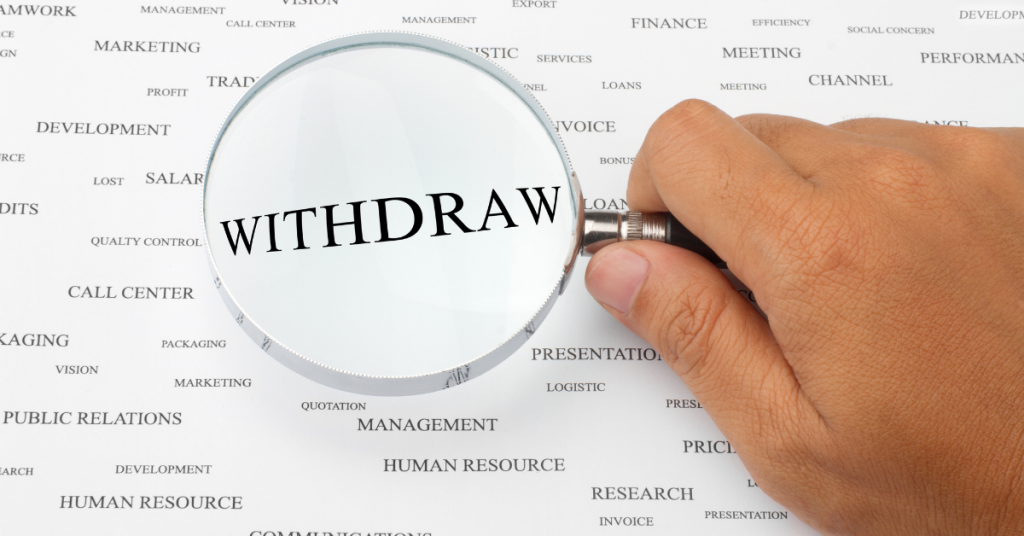Withdrawal is a medical condition that causes problems with the brain. It can be caused by substance abuse or another type of addiction. Symptoms include mood swings, anxiety, depression, and withdrawal symptoms. This article takes you through all the steps for withdrawing from certain substances so you can get back to living life without being controlled by your addiction.
Contents
What Is Withdrawal?
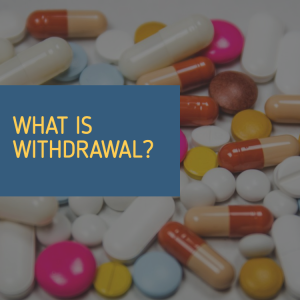 Withdrawal is a condition that can occur in people who are addicted to drugs or alcohol. When someone stops using the substance they are addicted to, they may experience withdrawal symptoms. These symptoms can be physical and/or psychological and can range from mild to severe.
Withdrawal is a condition that can occur in people who are addicted to drugs or alcohol. When someone stops using the substance they are addicted to, they may experience withdrawal symptoms. These symptoms can be physical and/or psychological and can range from mild to severe.
This condition also occurs in people who are dependent on medication. When someone stops taking the medication they are dependent on, they may experience these symptoms.
Sometimes this condition can occur when people suddenly reduce the dose of a medication they are taking.
Types of Withdrawal
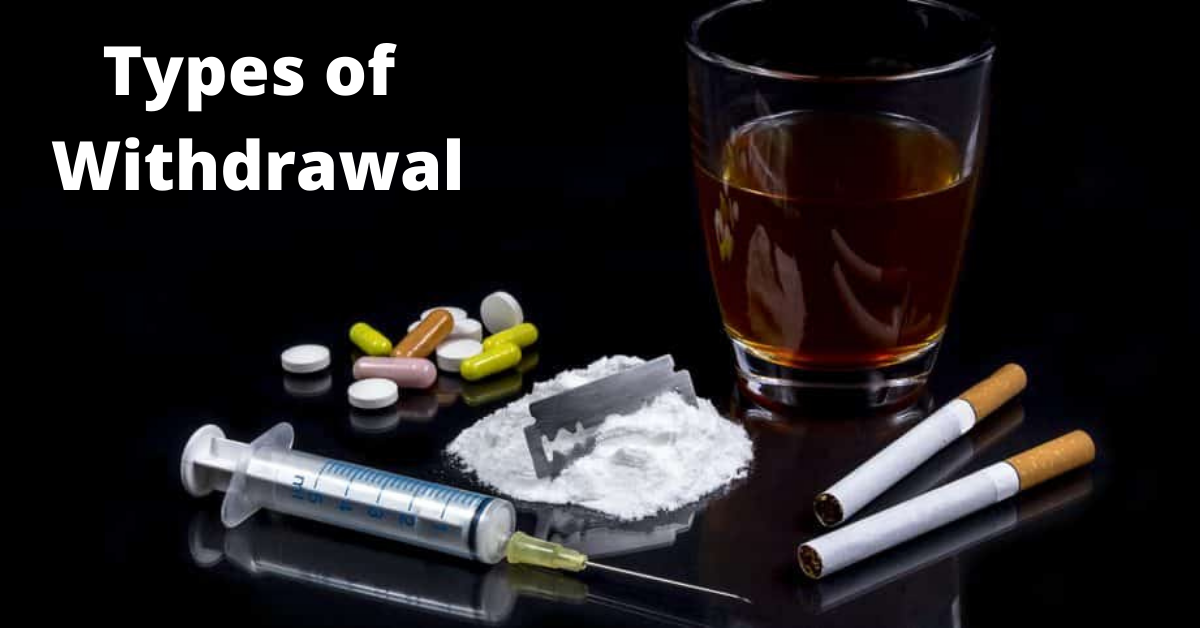
There are many types of withdrawal. Some of the most common are:
Withdrawal From Drugs
This type of withdrawal can occur when someone stops using drugs they are addicted to. The withdrawal symptoms can be physical and/or psychological and can range from mild to severe. It is important to note that the type and severity of symptoms vary depending on the drug being used.
Withdrawal From Alcohol
This type of withdrawal can occur when someone stops drinking alcohol they are addicted. The withdrawal symptoms can be physical and/or psychological and can range from mild to severe. It is important to note that the type and severity of symptoms vary depending on how long someone has been drinking, how much they drink, and their general health.
Withdrawal From Medication
This type of withdrawal can occur when someone suddenly stops taking medication they are dependent on or reduces the dose of a medication they are taking. Withdrawal symptoms can be physical and/or psychological and can range from mild to severe. It is important to note that the type and severity of symptoms vary depending on the medication being taken.
Withdrawal From Cigarettes
This type of withdrawal can occur when someone stops smoking cigarettes they are addicted to. The withdrawal symptoms can be physical and/or psychological and can range from mild to severe. It is important to note that the type and severity of symptoms vary depending on how long someone has been smoking, how much they smoke, and their general health.
Withdrawal From Caffeine
This type of withdrawal can occur when someone stops drinking caffeine they are addicted to. These symptoms can be physical and/or psychological and can range from mild to severe. It is important to note that the type and severity of symptoms vary depending on how much caffeine someone drinks, and their general health.
Withdrawl From Nicotine
This type of withdrawal can occur when someone stops using nicotine they are addicted to. The withdrawal symptoms can be physical and/or psychological and can range from mild to severe. It is important to note that the type and severity of symptoms vary depending on how long someone has been smoking, how much they smoke, and their general health.
How Common Is Withdrawal?
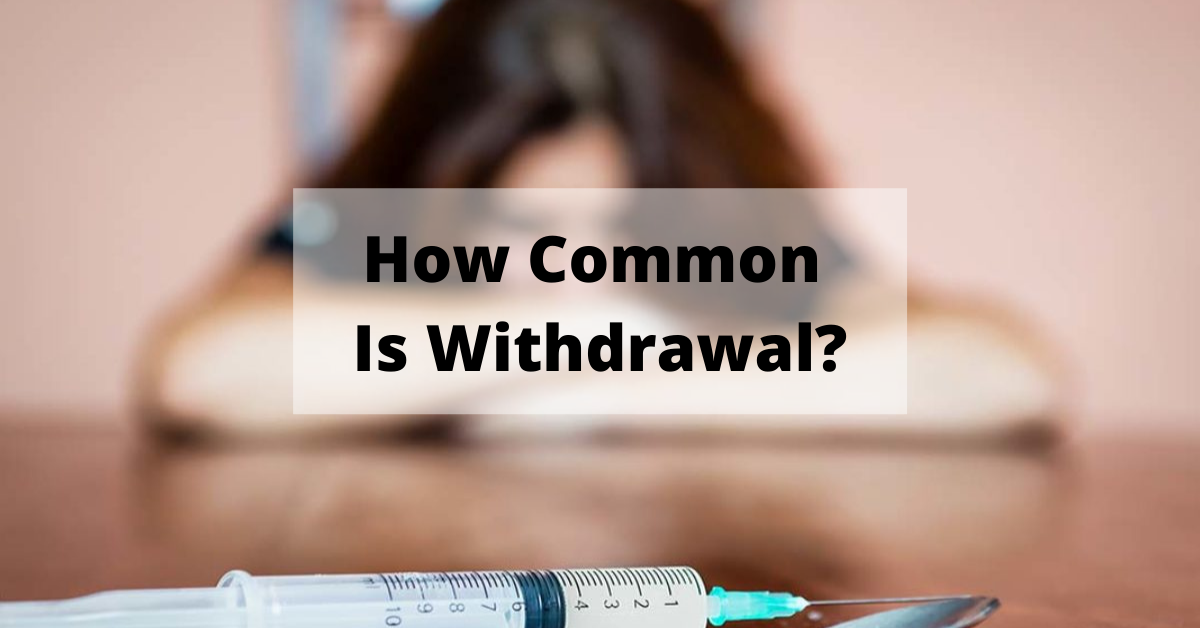
Withdrawal is a common condition. It can occur in people who are addicted to drugs or alcohol, people who are dependent on medication, and people who suddenly stop taking medication they are dependent on or reduce the dose of a medication they are taking.
The type and severity of symptoms vary depending on the person’s addiction or dependence, as well as their general health.
Around the world, millions of people experience this every year. Approximately 23.5% of people who seek treatment for addiction suffer from withdrawal.
Symptoms of Withdrawal
There are many symptoms of withdrawal. Some of these are:
Nausea
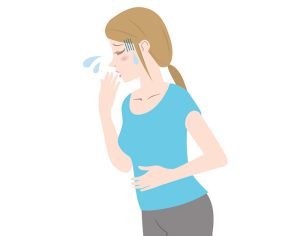 This sign is usually the first one that people experience. It can be accompanied by vomiting and diarrhea. Sometimes this is so severe that people cannot keep any food or drink down. One of the first things to do is to drink plenty of fluids, especially if you are vomiting and diarrhea are present.
This sign is usually the first one that people experience. It can be accompanied by vomiting and diarrhea. Sometimes this is so severe that people cannot keep any food or drink down. One of the first things to do is to drink plenty of fluids, especially if you are vomiting and diarrhea are present.
Tremors
Tremors are shaking or trembling of the hands, feet, arms, or legs. This sign is usually seen in people who are withdrawing from drugs such as cocaine or methamphetamine. Sometimes it can also be seen in people withdrawing from alcohol.
Sweating

This sign is usually seen with drug withdrawals, but it can also occur with alcohol withdrawal. It may be accompanied by a rise in body temperature. This sign is not as common in people withdrawing from medications.
Racing Heartbeat
A racing heartbeat is one of the most common withdrawal symptoms. It can cause an increase in blood pressure and a feeling of anxiety. It can also lead to a stroke or heart attack.
Hallucinations
 Hallucinations are seeing or hearing things that are not there. They can be visual, auditory, olfactory, gustatory, or somatic. This sign is most commonly seen with drug withdrawals but it can also occur with alcohol withdrawal.
Hallucinations are seeing or hearing things that are not there. They can be visual, auditory, olfactory, gustatory, or somatic. This sign is most commonly seen with drug withdrawals but it can also occur with alcohol withdrawal.
Anxiety
This sign is very common with drug and alcohol withdrawals. It may be accompanied by panic attacks and agitation. Sometimes people may feel like they are going crazy. It also can occur with people withdrawing from medications.
Depression
This sign is also very common with drug and alcohol withdrawals. It may be accompanied by suicidal thoughts. It also can occur with people withdrawing from medications.
Seizures
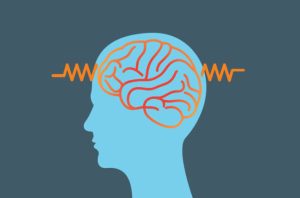 These are electrical storms in the brain that can cause changes in heart rate, blood pressure, and breathing. They can also cause a person to lose consciousness. This sign is most commonly seen with drug withdrawals but it can also occur with alcohol withdrawal. The risk of seizures is highest in the first 72 hours after quitting.
These are electrical storms in the brain that can cause changes in heart rate, blood pressure, and breathing. They can also cause a person to lose consciousness. This sign is most commonly seen with drug withdrawals but it can also occur with alcohol withdrawal. The risk of seizures is highest in the first 72 hours after quitting.
Sweating
This sign is when there are drug withdrawals, but it can also occur with alcohol withdrawal. It may be accompanied by a rise in body temperature. This sign is not as common in people withdrawing from medications.
High Blood Pressure
This sign is not as common in people withdrawing from medications, but it can occur. It may be accompanied by a rapid heart rate and a feeling of anxiety. It can also lead to a stroke or heart attack.
Muscle Tension
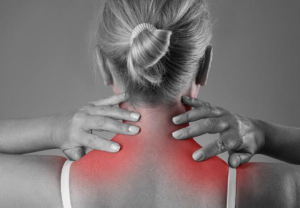 This sign also is not as common in people withdrawing from medications, but it can occur. It may be accompanied by a feeling of anxiety and tension in the muscles. This can lead to pain in the muscles and joints.
This sign also is not as common in people withdrawing from medications, but it can occur. It may be accompanied by a feeling of anxiety and tension in the muscles. This can lead to pain in the muscles and joints.
How Long Does Withdrawal Last?
The length of withdrawal varies depending on the person’s addiction or dependence, as well as their general health. In most cases, however, the withdrawal will last for several weeks. For some people, it may last for months or even years.
Withdrawal is a process that can be difficult to go through. However, with the right support, it is possible to get through it.
If you are experiencing withdrawal symptoms, please seek medical help. There are many resources available to help you through this process.
Sometimes withdrawal can be fatal. If you are feeling suicidal or having a seizure, please seek medical help immediately.
Causes of Withdrawal
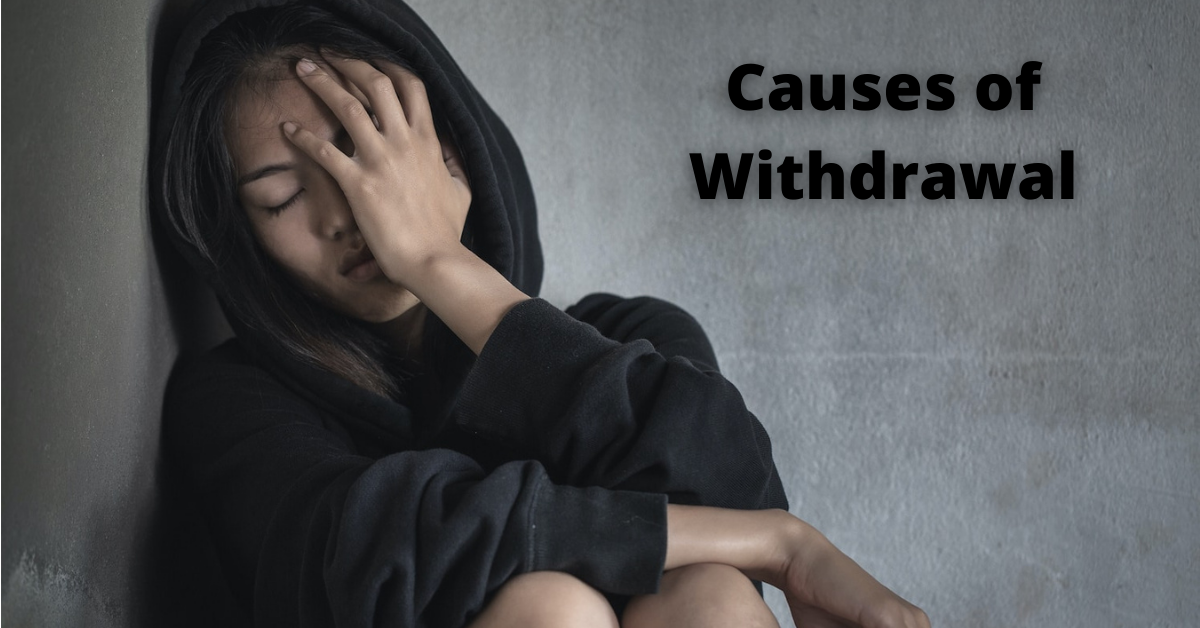
There are many causes of withdrawal. Some of the most common are:
Drug Addiction Or Dependence
Sometimes people become addicted to drugs because they are trying to self-medicate an underlying mental health condition. Other times people may become addicted to drugs through recreational use.
Alcohol Addiction Or Dependence
People can become alcohol dependent for many reasons, including genetics, environment, and psychological factors. Sometimes people start drinking as a way to cope with problems or stress.
Prescription Medication Addiction Or Dependence
Some prescription medications can be addictive when taken in high doses or for long periods of time. This is especially true of painkillers such as oxycodone and hydrocodone.
How To Deal With Withdrawal?
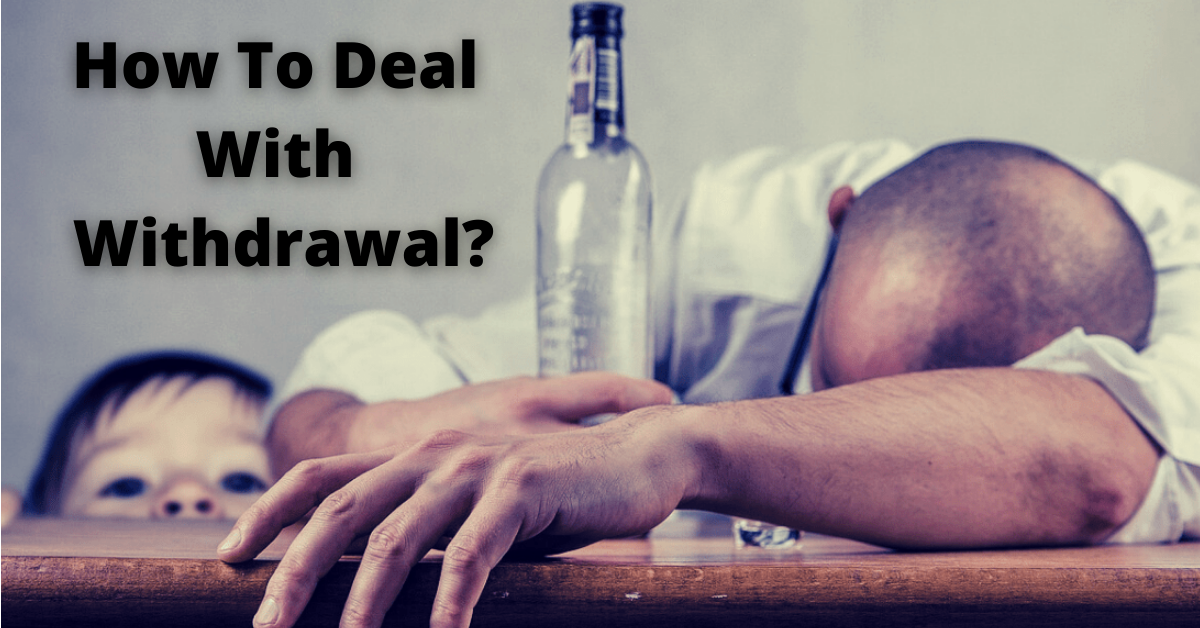
There are many ways to deal with this. Some of the most common are:
Inpatient Treatment
Inpatient treatment is often the best option for people who are struggling with addiction or dependence. These programs provide a safe and supportive environment where people can get help for their addiction. This type of treatment is also beneficial for people who are experiencing withdrawal symptoms.
Outpatient Treatment
Outpatient treatment is a good option for people who cannot take time off from work or school to attend inpatient treatment. These programs offer many of the same services as inpatient programs, but people can continue to live at home while they are receiving treatment.
Medication-Assisted Treatment
For some people, medication-assisted treatment is the best way to deal with withdrawal symptoms. This type of treatment uses medications such as buprenorphine and methadone to help reduce cravings and prevent relapse. There are many clinics that offer this type of treatment.
Support Groups
support groups can be a helpful way to deal with withdrawal symptoms. These groups provide a safe and supportive environment where people can share their experiences and get support from others who are going through the same thing.
Self-Help Programs
There are many self-help programs available for people who are struggling with addiction or dependence. These programs provide information and tools that can help people manage their addiction and withdrawal symptoms.
Therapy
Therapy can be a helpful way to deal with the psychological effects of withdrawal. therapy can help people understand the root causes of their addiction and learn how to cope with difficult emotions without using drugs or alcohol. It can also help people develop healthy coping skills.
Coping-Up With Withdrawal Symptoms
There are many ways to cope-up with withdrawal symptoms. Some of the most common are:
Rest
 When people are going through withdrawal, it is important to get plenty of rest. This will help your body heal and recover from the experience.
When people are going through withdrawal, it is important to get plenty of rest. This will help your body heal and recover from the experience.
Hydration
It is also important to drink plenty of fluids when you are withdrawing from drugs or alcohol. dehydration can make withdrawal symptoms worse.
Nutrition
 Good nutrition can also help reduce the severity of these symptoms. Eating healthy foods will give your body the nutrients it needs to heal and recover. This is especially important if you are withdrawing from a drug or alcohol addiction.
Good nutrition can also help reduce the severity of these symptoms. Eating healthy foods will give your body the nutrients it needs to heal and recover. This is especially important if you are withdrawing from a drug or alcohol addiction.
Exercise
Exercise can also help reduce the severity of these symptoms. exercise releases endorphins, which can help improve mood and reduce stress.
Distraction
When you are going through withdrawal, it is important to find distractions that will keep your mind off of drugs or alcohol. This may include activities such as reading, watching TV, or spending time with friends and family.
Conclusion
Withdrawal is a difficult process, but there are many ways to cope with it. There are also many resources available to help you get through this time. If you are struggling with withdrawal, please reach out for help. There is support available and you do not have to go through this alone.
In conclusion, there are many ways to deal with this. Some of the most common are inpatient treatment, outpatient treatment, medication-assisted treatment, support groups, self-help programs, and therapy. There are also many ways to cope-up with withdrawal symptoms. Rest, hydration, nutrition, exercise, and distraction can all be helpful tools. Withdrawal can be a difficult experience, but it is possible to get through it with help from others.
A Word From Therapy Mantra
Your mental health — Your psychological, emotional, and social well-being — has an impact on every aspect of your life. Positive mental health essentially allows you to effectively deal with life’s everyday challenges.
At TherapyMantra, we have a team of therapists who provide affordable online therapy to assist you with issues such as depression, anxiety, stress, workplace Issues, addiction, relationship, OCD, LGBTQ, and PTSD. You can book a free therapy or download our free Android or iOS app.
